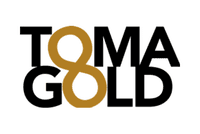If Iran isn’t on gold investors’ radar, perhaps it should be. With the effects of sanctions and inflation intensifying, the nation may be bullish for gold.
By Michelle Smith Exclusive to — Gold Investing News

Gold has a deep-rooted cultural and investment significance in Iran, and tightening sanctions by the US and EU could intensify its importance. Sanctions are nothing new to Iranians, but the latest measures, coupled with rampant inflation, have ignited concerns about the nation’s economic stability. The result has been a recent gold binge and suggestions that these circumstances could affect the broader metals market.
Iran’s nuclear program is extremely disturbing to many nations, especially the US and the EU. Though Tehran insists that its nuclear activities are for peaceful purposes, the program has resulted in a new wave of sanctions aimed at crippling the government’s financial ability to continue it.
The US’ intensified sanctions include targeting Iran’s Central Bank and broadening the scope of asset freezes. The EU has taken similar steps, and has tightened its sanctions with an oil embargo. EU nations cannot enter any new contracts for Iranian oil, and existing agreements are subject to a July 1 cut-off date.
Iranians flock to gold
Iranians are considered gold hoarders. Gold coins are the average person’s investment choice, and are also commonly used to fulfill mehr, a wedding gift required for Muslim brides. But in December, ahead of the additional sanctions, Iranian appetites erupted into a gold rush.
The nation’s currency, the rial, had lost about 15 percent of its value in the span of a month. With inflation running rampant, the cost of living was rapidly rising and Iranians’ currency-based savings were swiftly eroding. Added to that were concerns about the economic outlook and more stringent sanctions that encompassed the Central Bank. People took defensive measures, gobbling up foreign currencies and gold. The metal’s price rapidly escalated due to the increase in demand and the declining value of the rial, and there was a wave of profit taking.
In January, the Iranian government intervened in an effort to channel money away from assets such as gold and currencies and direct money toward the industrial sector. Efforts to accomplish this task included increasing interest rates and selling bonds with attractive yields.
International trade and gold
As of March 17, however, further financial pressure was applied. Iranian banks subject to EU sanctions, including the Central Bank, were denied access to the Society for Worldwide Interbank Financial Telecommunication (SWIFT). Headquartered in Belgium, SWIFT is a global financial messaging service used to transfer money, and is central to trade transactions.
Denying Iran access to SWIFT makes international trade more difficult, but not impossible. There are numerous ways the country can circumvent this measure, and one of them is using gold as currency.
Included among the EU’s latest sanctions are restrictions on the sale, purchase, transportation, or brokering of gold to, for, or from the Iranian government, the Central Bank, and their associated entities, suggesting that the international community is aware that gold could be an important asset for Iran.
Still, in addition to its reserves, Iran may obtain gold from its trade partners.
Press TV quoted Central Bank Governor Mahmoud Bahmani as saying that Iran has no problem with countries paying for the price of imports from Iran in gold.
India is said to have already purchased oil with gold, and there are suggestions that China, which has blatantly refused to stop using Iranian oil, may also be willing to pay in gold.
Iran may not just accept the metal as payment, but may also use gold as a currency itself. There are reports that gold has already been used to purchase at least 200,000 tons of wheat.
Iran bullish for gold?
Iran’s inflation is now placed at levels exceeding 20 percent. A portion of the problem is attributed to excessive unproductive liquidity. While there isn’t a reliable official figure, estimates suggest $300 to $350 billion dollars is present in the Iranian economy with only $70 billion being productively used.
Gold is one of the destinations for much of this so-called dormant money because the metal is seen as a savings vehicle and an almost surely profitable investment that is easy to liquidate.
Hussein Asadina, described as an economic expert by Press TV, says that $100 billion moves toward gold and foreign currencies. In the gold market, he says, that can create demand for 337 million gold coins, many of which are still unstruck.
Though the government wants to attract money away from assets such as gold, given the problems facing the rial and the Iranians’ penchant for the metal, gold investors should question how effective those efforts will be, especially if economic conditions continue to deteriorate. Gold demand could significantly increase instead.
Furthermore, if gold gains ground for use in trade transactions, the metal’s value should increase. There is also the possibility that the trend of gold being used as currency will trickle down to smaller commercial transactions, further impacting gold’s value.
Some say that attempts to place Iran under financial pressure will be less effective than the US and EU expect. But, if nothing else, there is the relationship between oil prices and gold prices. Historically, the two move in the same direction. The EU has not yet weaned itself off of Iranian oil, but already crude prices are on the rise.
Given the various ways that the gold market could be affected by the Iranian economy, investors may want to keep developments on the radar.
Securities Disclosure: I, Michelle Smith, hold no direct investment interest in any company mentioned in this article.





